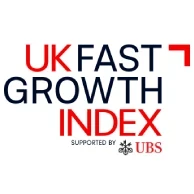It is the start of a new working week, yet the fallout from the United Kingdom’s decision to vote Leave in Thursday’s European Union referendum is still a hot topic of conversation.
We caught up with The Sunday Times’ Economic Editor, David Smith, to hear his thoughts on the history-defining vote. With decades of experience as a financial journalist, he has been honoured with the Harold Wincott Award for 2004 Senior Financial Journalist of the Year, a reflection of David’s international reputation. He has been the voice of reason during the Brexit campaign, using his leading insight David has supplied economic analysis of UK/EU relations, trade and international business.
Read our exclusive interview with economics speaker, David Smith, and discover his expert stance on the Brexit result.
Q: What was your reaction to the result?
“I have to say that I was surprised. I probably believed the polls a little too much because, despite them suggesting a large lead for Brexit early last week, as the vote got closer, they moved back rapidly in favour of remain. This seemed to fit the more plausible story about people being concerned about the risks and therefore more likely to vote for the status quo.”
Q: From an economic stance, how will leaving the EU impact the UK?
“From a business perspective, it’s the uncertainty which is the greatest problem. I’ve heard a lot of stories about companies which had delayed investments until they knew the result, and now will probably not go ahead with them and might not go ahead with planned recruitment programmes either.”
Q: Do you think the pound falling to a 31-year low is a sign of long term issues?
“I think there are likely to be a series of effects over the coming weeks and months, as there is going to be a lot of political uncertainty, questions around whether there will be a general election with a new Conservative leader. It’s certainly not going to be a one day only market reaction.”
Q: How do you feel about a Scottish independence referendum?
“I was strongly opposed to Scottish independence at their referendum, but you could not blame them now. No local authority in Scotland did anything other than vote to stay in the EU, which is in stark contrast to most of England and Wales.”
“I think they have a good case for it now but unfortunately the economics seem to be against it, partly because of oil prices, although politically the case seems strong. If the referendums had been the other way around, with the EU referendum and then the independence vote, I think people would have gone for it in huge numbers.”
“It is very ironic how it has all turned out as a number of powerful former European Commissioners said that if Scotland voted for independence then they would have to renegotiate their membership of the EU. The language used then was very similar to that used by President Obama, but this time it had the opposite effect.”
Q: Finally, what is your closing statement on the UK leaving the EU?
“Voting Leave has all sorts of repercussions in the UK, and potentially elsewhere in Europe too. You never know where this is going to end up."
Book David Smith
To book economic editor David Smith for your event, get in touch today via the online contact form or by calling 02071010553.









